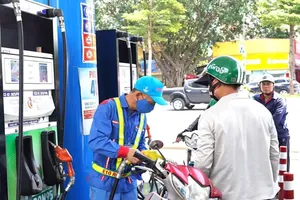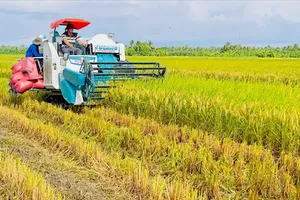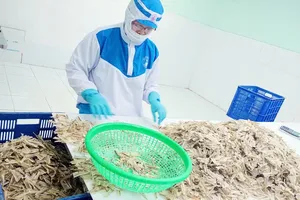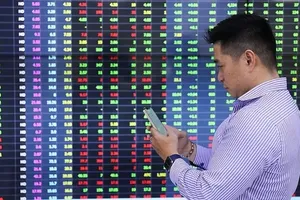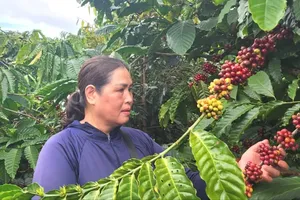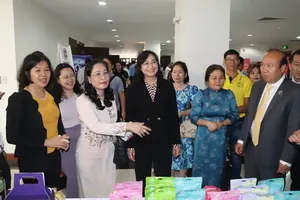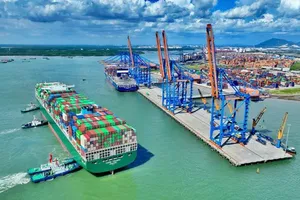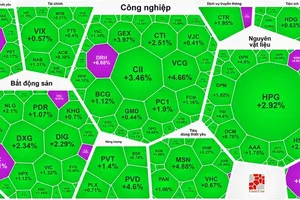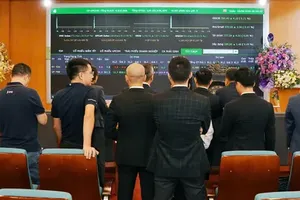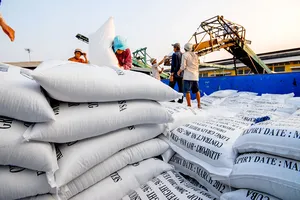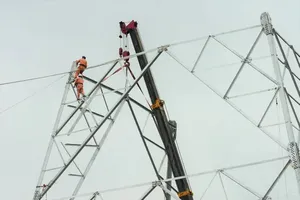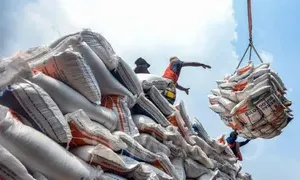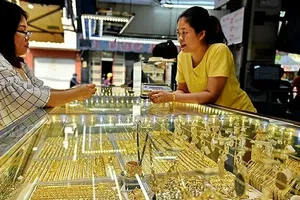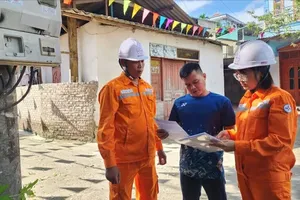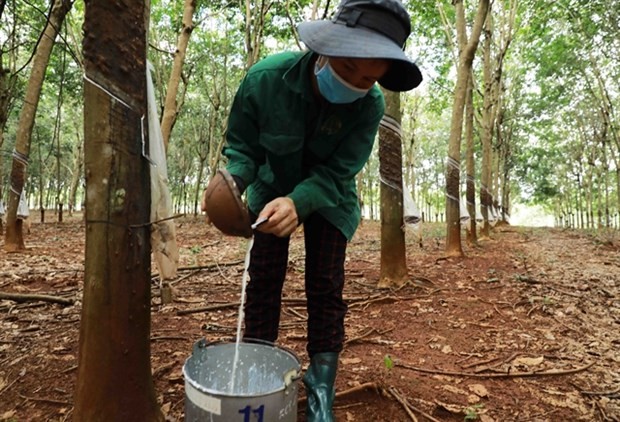 A worker collects latex at a rubber plantation in Binh Phuoc province. (Photo: VNA)
A worker collects latex at a rubber plantation in Binh Phuoc province. (Photo: VNA)
Rubber prices decreased during the period as demand slowed in China due to hot weather disrupting production and prolonged Covid-19 prevention measures affecting production activities.
This development was reflected in the business results of the rubber industry group. According to a survey of 13 listed companies on the Ho Chi Minh Stock Exchange (HoSE), the Hanoi Stock Exchange (HNX) and the UPCoM, there were eight companies posting reduced profits and only three witnessing gains, while another two suffered losses.
Vietnam Rubber Group (HoSE: GVR)'s consolidated profit after tax plunged 35.2 percent on-year-on to VND993.86 billion (US$40.09 million) in Q3/2022. The company explained that the general economy fluctuated toward a downward trend, causing a decrease in sales during the period along with a fall in selling prices while expenses for input surged over the same period last year.
In addition, subsidiaries made provisions for the impairment of investments in Laos due to the depreciation of the Lao's currency kip.
For the first nine months of the year, the company reported a drop of 8.6 percent in profit after tax to nearly VND3.5 trillion.
Similarly, Phuoc Hoa Rubber JSC (HoSE: PHR) experienced an increase in input costs and cost of goods, dragging its gross profit margin down by 20 percent, said the company. Therefore, its profit after tax in Q3 subdued 17.65 percent over last year to VND140.46 billion.
The profit after tax of Tan Bien Rubber (UPCoM: RTB) plummeted 90.1 percent year-on-year to VND15.78 billion. The company said that its revenue fell 35.25 percent to over VND75 billion due to a decrease of 1,900 tonnes in sales, and income from the liquidation of rubber plantations also edged down while all kinds of expenses rose.
Some other enterprises witnessed gains in profits such as Doruco (HoSE: DPR), Horuco (HoSE: HRC), and Inruco (UPCoM: IRC). However, the growth did not come from the main business. Horuco's profit after tax was up 28.6 percent to VND738.5 million thanks to the cut in management costs.
Meanwhile, consolidated profit after tax of Doruco reached more than VND97.5 billion, a 28.2 percent and Inruco's was over VND19 billion after losing VND6 billion in the same period last year, both thanks to liquidation of rubber trees.
The November strategy report of ACB Securities Company (ACBS) showed that natural rubber futures prices on the Tokyo Commodity Exchange slid by 4.56 percent amid concerns about oversupply and slowing demand from China, while many cities in this country set up new lock-downs.
Recently, the city of Chongquing, one of China's largest auto manufacturing hubs, issued an order to cut electricity to save energy amid unprecedented heat waves that have forced a number of factories to close.
Moreover, global economic growth slowed down after central banks raised interest rates to curb inflation, and chip shortages pulled demand for rubber products such as auto parts, clouding the rubber demand outlook.
ACBS expected that rubber prices are unlikely to rebound due to lower demand.


